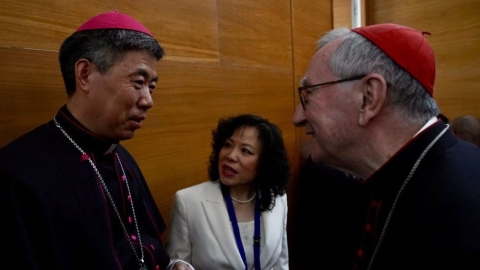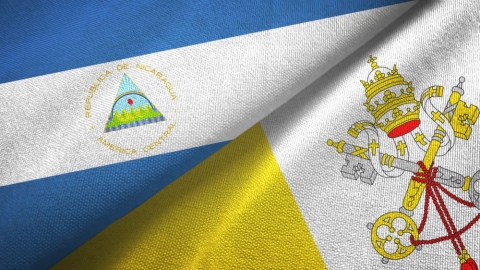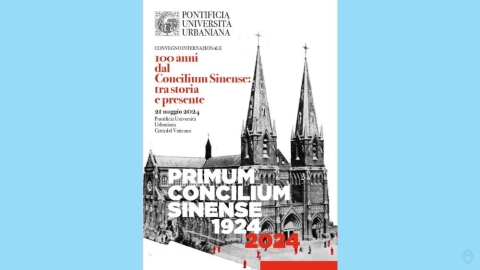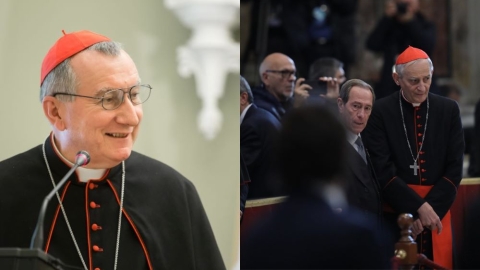The Dead So Alive

Souls in Purgatory, Alonso Cano (1636)
“I believe that when, freed from all union with matter, the soul finally becomes itself in the purity of its essence, and only then does it 'think', in the strong sense of word for the sages.”
This consoling word put on the lips of Cato, when it is meditated upon with a Christian view, throws a singular light on what the souls of the faithful who have left this world are living at this moment, these dear beings for whom the month of November is auspicious in reviving a memory that the pitiless onslaught of the years is trying to stifle little by little.
Indeed, our sanitized century strives to push back, with a barely veiled dread, the very idea of death, thus digging such an abyss between the world of the living and that of the dead, that the latter seems to constitute an unknown universe, disturbing and obscure.
Nothing could be further from the truth, however, if we take the time to consider what are both enlightening and consoling arguments of Catholic theology on this matter.
Souls in the Truth
Whether they are in Heaven or in Purgatory – this is not the place to speak of souls condemned by their own fault and who share only eternal misfortune – the souls of the deceased enjoy, albeit in different ways, a knowledge of God far more luminous than ours.
To explain this thesis, St. Thomas Aquinas resorts to the principle according to which the mode of intellectual knowledge of the separated soul – that is to say of the deceased whose soul has left the body – is similar to that of the angel. Now it is proper to the angel to be devoid of corporeal matter and therefore of the sensory organs which depend on it.
The angel does not apprehend external realities like us: where the human being reasons and passes successively from one conclusion to another, with sometimes – often, alas! – the possibility of falling into error and being guided by badly tamed passions, the angel immediately sees the conclusion in a way that is instantaneous, stable, and intuitive, that is, without any form of reasoning.
In other words, where so few men manage to realize - and when they do so at the cost of how many hesitations - what place God, this God who contains all in His hand, must hold in the conduct of life, the angel perceives this high truth in a single act of intelligence.
Conscious, in the twinkling of an eye, of its finitude as much as of its absolute dependence on its Creator governing the whole universe, the angelic creature overflows without waiting, with feelings of filial awe, thanksgiving, and silent adoration.
Our deceased who, it should be repeated, have a mode of knowledge similar to that of the angel, although to a lower degree, our deceased therefore have a perception, a feeling, and, in a word, an intuition of God that is much more acute and penetrating than that which we can ever have while we live in this vacillating world.
The souls of the faithful who have left us are therefore souls in the Truth, souls who face the Truth, who are fixed there in a consoling and indefectible way. How far from our dear departed are the dreams of independence, the disastrous illusions of a false freedom, the pretense of an existence out of time which believes, ironically enough, to be able to do without God, or worse, give Him the miserable role of a bit player!
Certainly there is a lesson to be learned here. If only, like the souls of the faithful departed, we practiced contemplation through the events of life – joys, sorrows, successes, and failures – the reflections of our own finitude, our radical impotence, and our absolute dependence on God, how the course of our lives would be transformed.
Souls Outside of Time
Time here below no longer has any hold on the souls of the faithful departed, this human, worldly time which sees unfold, as on a theater stage, the implacable drama of passions, hesitations, and all the turn about towards which our frail nature seems inexorably inclined.
Indeed, the souls who suffer in Purgatory are marked by a very particular duration that the scholastics call by the name of aevum. It is constituted time, measured by the succession of thoughts: so many thoughts, so many instants in this aevum.
Let us cast our eyes on this soul in Purgatory who strongly desires the God and who suffers from not being yet worthy, because of so many imperfections and failed acts; well, all the time left to this soul will be occupied with the mere thought of this desire. So much so that the liturgy applies these words to it: “towards You the dead sigh, burning with the desire to be released from their chains in order to finally appear in Your holy presence.”
The souls of the blessed are, for their part, in another time, that of participated eternity which consists of a single immobile moment, like a fixed point: that of a gaze full of love focused on the Trinity definitely possessed.
What a contrast this is to us, fickle creatures, who waste every moment that God, in His mercy, gives us, fluttering from one activity to another, according to our whims.
Out of time, the souls in Purgatory have not lost the memory of those who were dear to them here below; and further, the souls who have reached eternity are not disinterested in the history of men: they are so united to the justice of God, explains St. Thomas, that they do not hesitate to interfere in our earthly affairs, insofar as this divine justice which goes beyond our narrow conceptions, allows it or demands it.
Finally, is not the time of our dear deceased that which made them become passionate about God?
Each soul is able to experience, at the moment of ultimate separation, the defined dogma of faith of the particular Judgment. The infallible magisterium of the Church, through the second council of Lyons and in terms taken up later by Pope Benedict XII, teaches that immediately after death, the soul is rewarded according to its merits.
In other words, the ultimate earthly moment is, for the soul preparing to leave its body, the moment of definitive choice. Some fine minds have wondered if, immediately after the separation, the soul would still be capable of producing an act of conversion to God in extremis. This view was held by Cardinal Cajetan, an authorized commentator on St. Thomas, and followed more recently by Sister Benedict of the Cross, better known as Edith Stein.
This hypothesis, while certainly useful in highlighting the infinite mercy of God, is not followed by the majority of theologians who see in the last moment spent on Earth the decisive moment when the soul determines itself freely and definitively towards what will be its eternity: with or without God.
How precious this last moment is and many souls suffer in Purgatory from ineffable torments for having perhaps neglected its significance too much.
But it is up to us, to us who are still in human time, who are to a certain extent masters of our time, to remedy this casualness. By working first on our own spiritual perfection (however much we fall and without ever giving up) is the way we prepare the ground for this final moment when we are face to face with the divine. We can also do good by taking on us a part of the negligence that our dear deceased had in this life, by offering of the Holy Sacrifice of the Mass for their intentions, and by the application of the indulgenced prayers the Church for the deceased.
May this month of November find us faithful and generous towards the memory of our dear departed, as well as in thoughts of the death which inexorably awaits us. In this nothing is sad with regard to our faith, because, as written so aptly by Gustave Thibon: “If death ripened in our souls as it ripens in our bodies, we would go to it like a flower opening to the light, and life here below, far from being darkened by its approach, would already be bathed in its transfiguring radiance.”
(Source : JBG – FSSPX.Actualités)
Illustration : Jl FilpoC, CC BY-SA 4.0, via Wikimedia Commons





